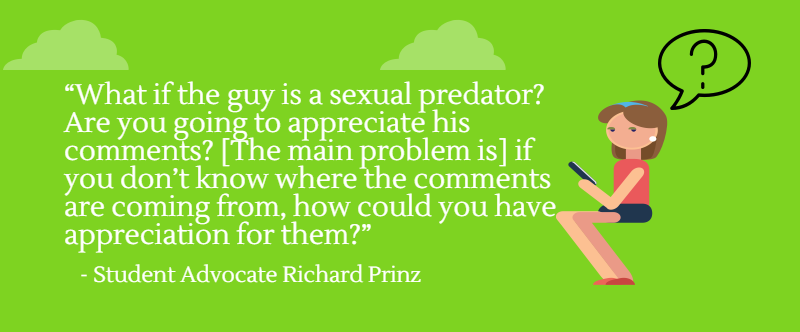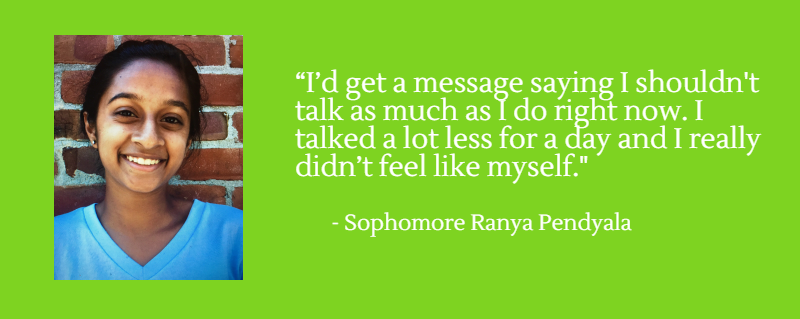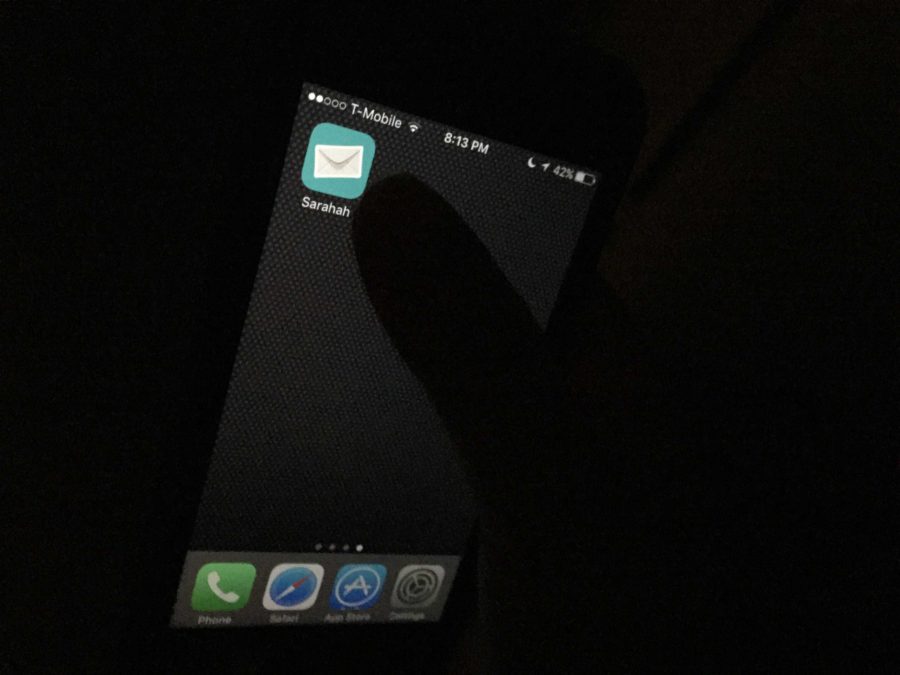As sophomore Ranya Pendyala talks to her friend on her phone, a notification from the corner of her screen catches her eye. She clicks on it and immediately Pendyala can tell the notification isn’t about to be pleasant. “You talk too much and it’s really annoying. Just stop.” Just like that, she’s a victim to an anonymous person scrutinizing her personality.
Sarahah — Arabic for “honesty” — is a popular new app that allows students to anonymously send one-sided messages to a person. This application has started to create many ethical issues for students at MVHS. Many are mesmerized by this application because of its ability to allow users to stay anonymous while sending brutally honest comments about others.
According to a recent article by Fortune.com, Sarahah has been the most downloaded application over the past several weeks with over 20 million downloads. During the summer, sophomore Ahish Anant had been able to see all the Sarahah action live through his friends, without having an account himself.
“Many people started using it as a way to pass their time, or they might be curious to see what others think about them,” said Anant. “My friends also thought that finding out more about themselves through anonymous texts is cool.”
Though many people look at Sarahah as an application used to give others honest feedback, according to some users, it could potentially be used as a platform for bullying and harassment.
“I did receive some shocking comments from people telling me things I’ve done that even I didn’t know I did,” Pendyala said. “Most of my messages were positive but when I received a negative comment I would think about it for a while and try to figure out what I did wrong.”

Though users are often left in a self-doubting state, the app’s popularity just keeps increasing. Many experts believe the sudden user expansion is due to the increase in trolls, people who surf the internet with the intention to harm others. In fact, Fortune.com also states that applications like Secret and Yik Yak, which were similar to Sarahah, were used by users who first had a sense of appreciation for the comments they received. They quickly flamed out due to the increased number of trolls making the application a primary spot for cyberbullies.
“What if the person that is sending you the text is a guy and he is a sexual predator? Are you still going to be appreciative of his comments?” Prinz said. “[The main problem is] if you don’t know where the comments are coming from, how could you have appreciation for them?”
According to the Business Insider, some users claim Sarahah to be a breeding ground for hate. A recent article mentions a teenager who received comments about being lynched after creating his own account. After this incident, the boy felt depressed and decided to stop using this app, while his dad took action against this.
“[The comments] can really change the students’ personality, how they act, and in terms of their surroundings,” Anant said. “It can also change their lifestyle, as the comments they receive can be derogatory, mean, or nice.”
Many students believe that these applications can be a factor that influences the way they act and their personality in and out of school.

MVHS students, as a whole, should be more careful when deciding what type of communication method to use. The choices they make can help them in the future. By choosing the right way to use a social media application, MVHS could help reduce bullying.
“Social media, in general, is sort of like a shovel,” Prinz said. “You can dig a hole and make a garden or you could smash someone in the head with it”










